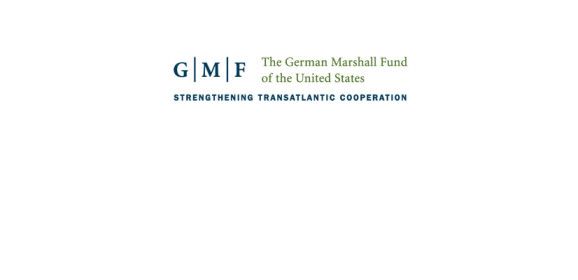Section: The German Marshall Fund of the United States (USA)
France’s Perspectives and Priorities for the European Neighborhood Policy
Photo: (BERTRAND LANGLOIS/AFP/GettyImages) PARIS—The European Neighborhood Policy (ENP) remains largely absent from the public and media foreign policy discussions in France. However, the recent security crises in Ukraine and the Mediterranean, the refugee crisis, and the latest terrorist attack in Paris have underlined the need to improve EU...
Learning on the Job
For the past five years Europe has been confronted with one fundamental crisis after the other – and each has pushed or pulled Berlin to the center of the Union’s response. When the sovereign debt crisis hit a number of member states in early 2010 and put the single currency under existential threat, Berlin unequivocally became ringleader....
Britain and the Spectre of Geopolitical Irrelevance
Transatlantic TakeLONDON—It is difficult to underestimate the impact of a new James Bond movie on the British psyche. The films, released now at three- or four-year intervals, give the fleeting sense that Britain still matters on the world stage. Yet Bond has long reflected something of a geopolitical fantasy; his enduring appeal based in part on...
Putin’s Aviation Nightmare
Vladimir Putin must hate aviation. The tragic crash of a Russian airliner in Egypt last weekend, with mounting evidence of a terrorist attack by ISIL, is but the latest in a series of air disasters challenging the Kremlin over the last year. All of these have directly resulted from Moscow’s ever more aggressive foreign policy — inUkraine,...
‘Only Solution to Refugee Crisis is a Common EU Response’
Karen Donfried was President Obama’s top adviser on European affairs at the White House from 2012 to 2014. She is now the president of the German Marshall Fund of the United States, a think tank aimed at bolstering transatlantic ties. She gives us her point of view on the refugee crisis in Europe, as well as the conflict in Ukraine and...
Global Disorder: Is it Always the West’s Fault?
Alexandra de Hoop Scheffer participated in a France Culture broadcast to discuss the question of ” Global Disorder : Is it always the West’s Fault?” Alexandra discussed the strategic and political implications of Western military interventions since Iraq (2003), semi-interventions (Libya) and non-intervention (Syria), both resulting...
Can we be Satisfied with the US Investigation After the Bombing of Kunduz?
Alexandra de Hoop Scheffer and Martin Quencez wrote an op-ed for Le Monde on the U.S. bombing of the Médecins sans Frontières (MSF) hospital in Kunduz (Afghanistan). The article supports MSF’s request for an international and independent investigation and shows how the situation also represents an issue of credibility for NATO allies who...
Germany: Saving Refugees Comes with a Huge Political Price Tag
Transatlantic TakeBERLIN—The influx of refugees into Germany is forcing its leaders to throw aside some of their long-held convictions and face reality. They are making nice with authoritarian Turkish President Recep Tayyip Erdoğan to get him to accept more refugees. They are talking to Russian President Vladimir Putin so that he does not further...
Is Saving Refugees Worth the Political Price Tag for Germany?
Transatlantic TakeBERLIN—The influx of refugees into Germany is forcing its leaders to throw aside some of their long-held convictions and face reality. They are making nice with authoritarian Turkish President Recep Tayyip Erdoğan to get him to accept more refugees. They are talking to Russian President Vladimir Putin so that he does not further...
EU Should Make Minor Compromises for Turkey’s Help on Refugees
Transatlantic TakeWASHINGTON—German Chancellor Angela Merkel’s dash to Istanbul on October 18 was a gift to Turkish President Recep Tayyip Erdoğan. Erdoğan is hoping that his Justice and Development Party (AKP) will regain its majority in the November 1 general election, after a setback last June, enabling him to call a referendum to...



